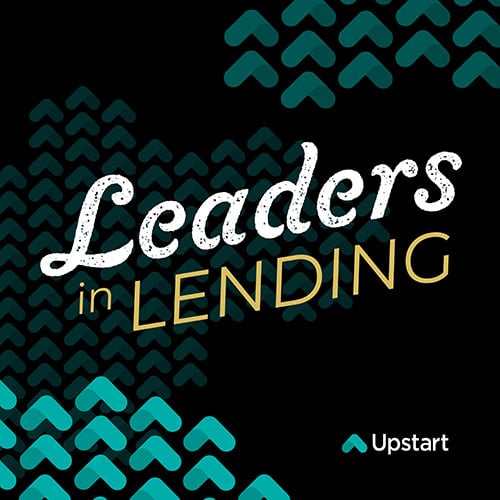Penny Lee is the President and CEO of the Financial Technology Association (FTA). Before joining FTA, Lee led the public affairs practice group at Invariant, a leading Washington, D.C., government relations and strategic communications firm. She previously served as Chief Strategy Officer of 1776, a prominent technology incubator and accelerator servicing over 1,200 startups in its network. Lee developed and formalized the business strategy necessary to execute the company’s priorities internally and externally, with operational authority over the company’s personnel, product, and finances. Additionally, she co-founded and chaired a Washington, D.C.-based angel investment group, K Street Capital, which has invested over $8 million in 65 companies. Lee is passionate about making the tech industry more inclusive, and while Chair of K Street Capital, female, female-identifying or underrepresented founders comprised 32 percent of the portfolio. Her experience also includes serving as Senior Advisor to Senate Majority Leader Harry Reid (D-NV), Executive Director of the Democratic Governors Association, and Communications Director for Pennsylvania Governor Ed Rendell. Roles in social impact complement her professional expertise. She maintains leadership and board positions for several D.C. area investment groups and nonprofit organizations, including Black Girl Ventures, Center for American Entrepreneurship, and National Links Trust, an organization seeking to diversify the game of golf by improving accessibility and affordability of municipal golf courses. Penny graduated from Baylor University with degrees in political science and journalism.
Leaders in Lending | Ep. 137
How Fintech Supports Users During Financial Crisis
Our host Lynn Sautter Beal is joined by Penny Lee, President and CEO at the Financial Technology Association (FTA) to break down all things fintech and how it intersects with regulatory changes, financial crises, and innovative product development.


GUEST SPEAKER
Penny Lee

ABOUT
Financial Technology Association
The Financial Technology Association (FTA) is a Washington, DC-based trade association representing fintech industry leaders. FTA educates, informs, and engages with Washington, advocating for modernized policies and regulations that spur innovation and drive inclusion. As the voice of the fintech industry, FTA serves as an ecosystem and community for leaders shaping the future of finance. The FTA represents industry leaders shaping the future of finance. They champion the power of technology-centered financial services and advocate for the modernization of financial regulation to support inclusion and responsible innovation.
Key Topics Covered
- The benefits of fintech companies positively engaging with regulators
- Why earned wage access plays such a large role in financial health
- The evolution of Buy Now Pay Later (BNPL) products and services

“We try to represent those that are in lending, payments, capital markets, buy-now-pay-later, earned wage access or others. We represent this ecosystem of fintech in the broader industry."


“I think the positive aspect is that there are low fee, affordable products that are now coming into the marketplace that allow boomers in small businesses to have access to this affordable capital to be able to one live a healthier life to meet the needs of their friends, themselves and their family.”
EPISODE RECAP & SUMMARY
It takes the right legislation and regulations to ensure a safe and secure experience, but how does that apply to personal use applications such as Venmo, Cashapp, DoorDash, and buy now Pay Later services?
Keeping fintech applications modern and competitive globally while maintaining that safety can feel like an uphill battle, and yet it’s an essential practice for fintech to survive in the states and overseas.
That’s why people like Penny Lee, President and CEO of the Financial Technology Association, step in to stand at the intersection of regulatory changes, financial crises, and innovative product development.
Lee holds a unique blend of knowledge around politics, policy, and investing, giving her a clear picture of how they intersect and why they must work together — for Lee, balancing the needs of consumers and regulators is practically second nature and she leverages all of her experience to help foster positive impact, even amid a financial crisis.
Innovation in fintech during financial crisis and economic turmoil
Coming out of the financial crisis of 2008 — where thousands of people lost their homes, were laid off, and experienced general lifestyle turmoil — fintech innovation may have been the last thing on people’s minds, but that didn’t mean it was less needed.
“You see a lot of products that came out in response — similar to Upstart — and others that were filling a marketplace gap because there was still the need for access to affordable credit in a way that could reach those that might be underbanked, underserved, but do it in a way that's not predatory,” Lee said.
These apps and products came forward to provide a way for people to buy a home or finance a car without going into crippling debt.
Today in 2024, we’re seeing a similar uptick in innovation and adoption in response to the COVID-19 pandemic, where remote/digital banking surged and continues to rise in popularity and consumer expectations.
“A lot of the innovation in this space has been from changing how we interact with financial services and how we get the delivery of money,” she said.
Consumers and small businesses have access to more digitized financial support than ever. Apps such as DoorDash and Instacart may seem easy and convenient on the outside, but there’s a host of fintech innovations behind those services that make it possible.
If necessity is the mother of invention, a financial crisis is an incubator for fintech innovation in service of the betterment of individual financial health. Even still, there are risks attached to fintech advancements.
The evolution and risks of Buy Now Pay Later (BNPL) products and services
BNPL is still a somewhat new, convenient, zero to low-interest product that allows users to make four payments over six weeks to pay for an item — clothing, goods, and so on — spreading out the impact of the purchase.
“It allows people to have an alternative payment method — if they need to spread their payments to meet their paychecks or address an emergency immediately, they can do it in a way that has zero interest, so when they pay it off in four payments, they don't incur any other fees attached to it,” Lee said.
Today, BNPL tends to exist as a marketing practice for brands with minimal warnings of the risks. If one were to take out multiple BNPL loans, it could negatively affect their ability to build positive credit in the eyes of credit bureaus.
“It's hard for credit bureaus to capture the positive aspect of somebody that uses by now pay later in a responsible manner, in a way in which they're paying it off each cycle, or each four week period,” Lee said. “Because, right now, what happens if you take out one, two, or three different BNPL loans or use BNPL products? You're maxing out your amount of available credit, which could seem like a negative.”
Credit bureaus were not built to capture daily to two-week transactional information, and until those pain points are solved, BNPL should not move beyond standard retail transactions, such as applying to car or home payments.
Before those advancements can happen, they need to understand:
- Payment frequency
- Payment amount
- Regular payment cadence
“Each credit bureau viewing this data in a very different way is something that is just too cumbersome for the companies to report into because it will be translated differently depending on the company in which they're engaged,” Lee continued.
With the average use of BNPL on a product sitting at a cap of $147.00, it has a ways to go before tackling higher-cost payments.
Why earned wage access plays such a large role in financial health
Here in the United States, it’s common for employees to receive their paycheck every two weeks or once a month — earned wage access does tide people over between pay periods.
“Back in the day, it would be a cash advance, and it was money taken out of the till at the end of the night and given to you and with the promise of being paid back — earned wage access is in that same vein, now in a digital manner,” Lee said.
Earned wage access allows people to have access to their wages daily, based on what they have already earned. This offering can provide peace of mind and decreased financial stress when properly leveraged, especially during times of personal financial crisis.
Fintech continues to change the landscape of what is possible in the sphere of individual financial health, building credit, and, as a result, building the life they want without drowning in red tape and debt.
Though there are still many gaps and risks to address in new fintech products and services, there are countless bright minds dedicated to delivering the safest and most secure environments possible — it’s only the beginning.
Stay tuned for new episodes every week on the Leaders in Lending Podcast.



